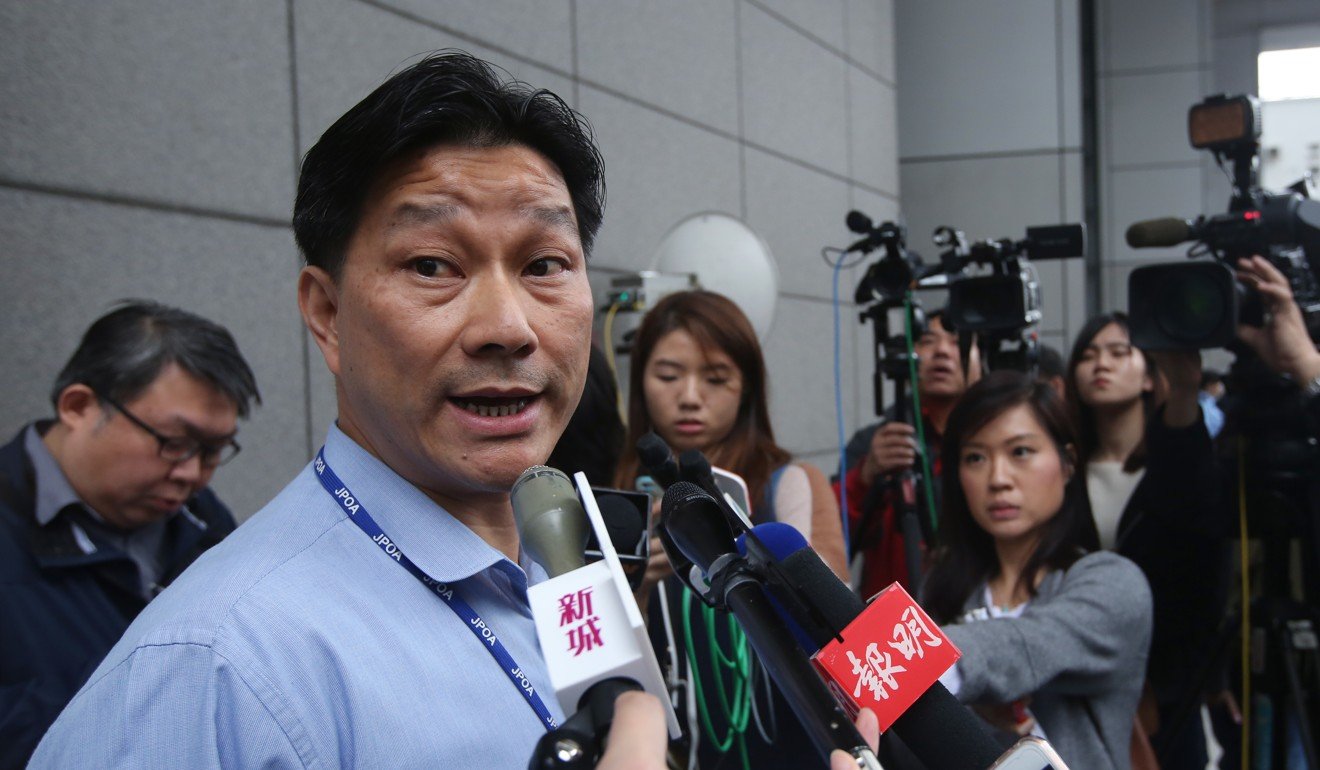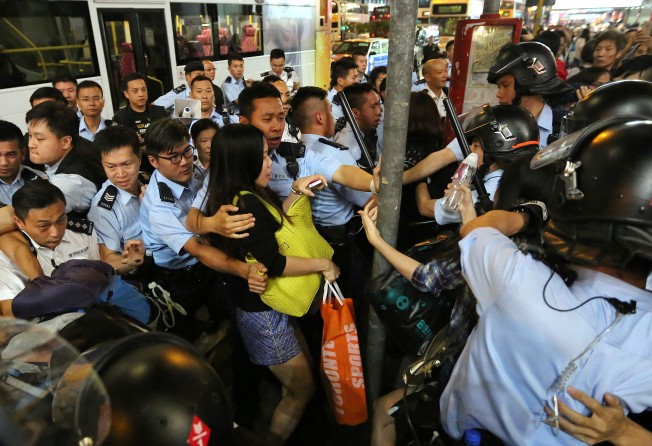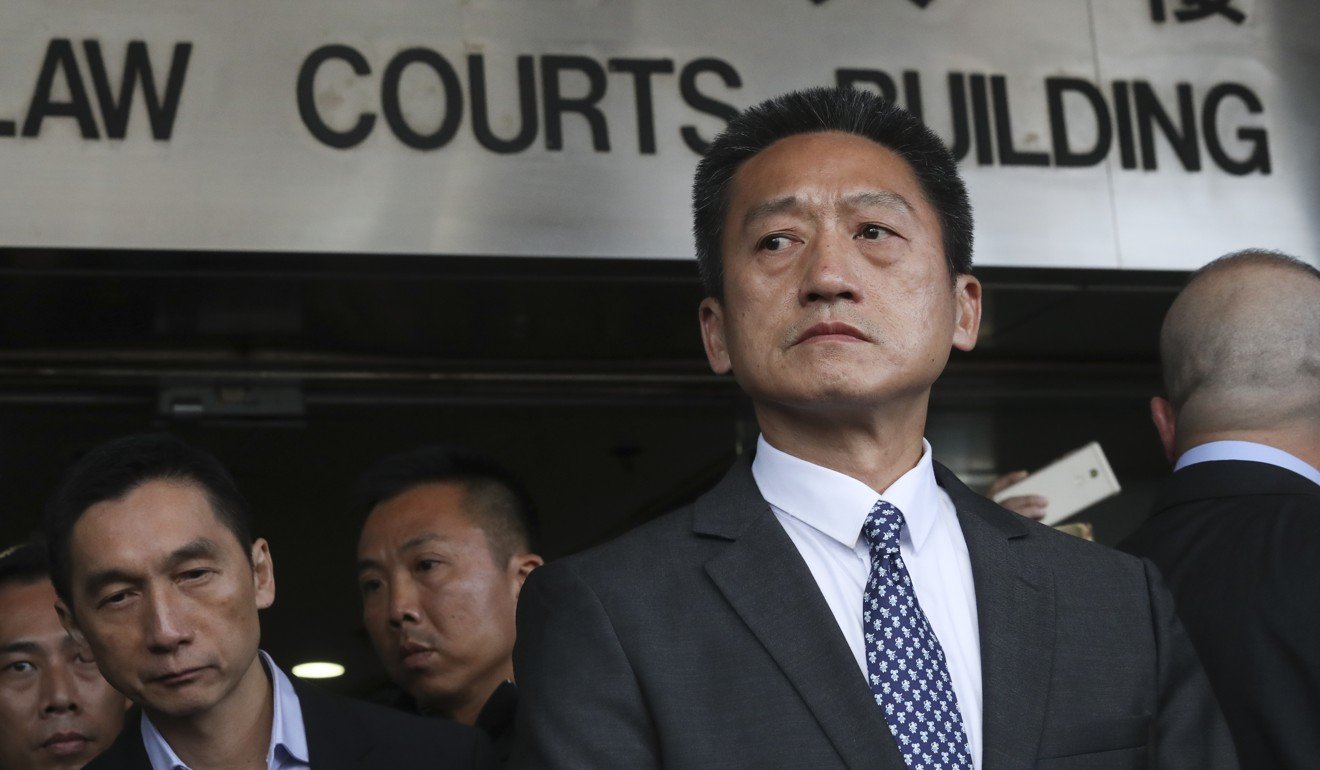
Hong Kong police union demands officers be exempt from criminal liability at work
Chairman of Junior Police Officers’ Association says Department of Justice does not understand how to properly assess officers’ use of force

A 20,000-member Hong Kong police union has demanded a law to exempt officers from criminal liability for actions taken during enforcement duties, saying members of the city’s judiciary do not have enough professional knowledge to judge their use of force.
Other officers said the courts failed to look at the situation from an officer’s perspective and did not understand the huge pressure officers shouldered in a split – but critical – second.
Joe Chan Cho-kwong, chairman of the Junior Police Officers’ Association, which represents two-thirds of the force, further clarified his appeals after the union on Sunday demanded an emergency meeting with the city’s civil service and security chiefs to discuss how to strengthen protection for frontline law enforcers.
“I am just a tool at work. I obey orders and execute commands. If I execute [duties] correctly, why should I bear criminal liability for what I have done? This is unfair,” Chan told the Post, explaining how the sentence imposed on former superintendent Frankly Chu pushed the association to voice its concerns.

“People from the Department of Justice judge a matter with reference to legal provisions and decide on a prosecution. But they are not professionals on the use of force. Therefore, there is a divergence on how we see the issue.”
He called for an amendment to the Police Force Ordinance – the law related to the police – so that officers could be protected from any criminal liability if they were correctly executing commands.
Chu’s recent three-month jail sentence for hitting a bystander with a baton during the 2014 Occupy protests caused uproar and deep resentment among police unions, prompting the force’s top brass to swing into full damage control mode to boost morale among frustrated officers.
Chan wrote to all union members over the weekend warning of a “morale crisis” brewing in the ranks. He also appealed for amendments to the law, regulations and guidelines to fit changes in society.
The Security Bureau and the Civil Service Bureau said they had received a letter from the Junior Police Officers Association and would follow up on it “in an appropriate manner”. Neither bureau would confirm if they would meet with the association this week, as it had requested.
A spokesman for the Security Bureau also said it would not comment on the association’s suggestion to exempt officers performing their duties from charges of criminal liability, saying this would require input from other parties and could not be worked out just between the bureau and the association.
According to the Force Procedures Manual on the use of force and firearms obtained by the Post, there were a number of levels of control under six different levels of resistance.
But it stated that the considerations were provided for reference only and that officers on the ground “should exercise their own discretion” to determine what level of force was justified in a given situation. “Officers will be accountable for their own actions,” the document read.
Chan said: “This is unreasonable. If my supervisor asked me to fire tear gas, I would face disciplinary action if I did not obey. But I bear criminal liability if things go wrong. We are trained to listen to commands.”
Another senior officer, who drew his gun in two separate armed robbery cases, recalled the tremendous pressure he shouldered at the time.
“I pulled my gun as I knew the armed robber was on the run nearby and could attack me at any time. If my situation was brought to court, the judge could have questioned why I needed to draw a gun when the robber was not even pointing his gun at me,” said the officer, who spoke anonymously.
“Such a decision is often made in the blink of an eye. I am not saying the courts are wrong by seeing our use of force at their legal angle. It is easy for them to judge while sitting in armchairs years after the incident, but they would not understand why we pulled a gun or used a baton in that situation as they never experienced it.”

Veteran security expert and lawmaker James To Kun-sun said he thought Chan’s appeal was strange as officers were well protected under the law.
“Police General Orders state clearly that officers should obey all lawful orders. If you think it is an unlawful action, you should not do it. The rules have been carried out for more than 100 years. There is a fine line between lawful and unlawful use of force,” To said.
Chu has been released on bail pending an appeal.